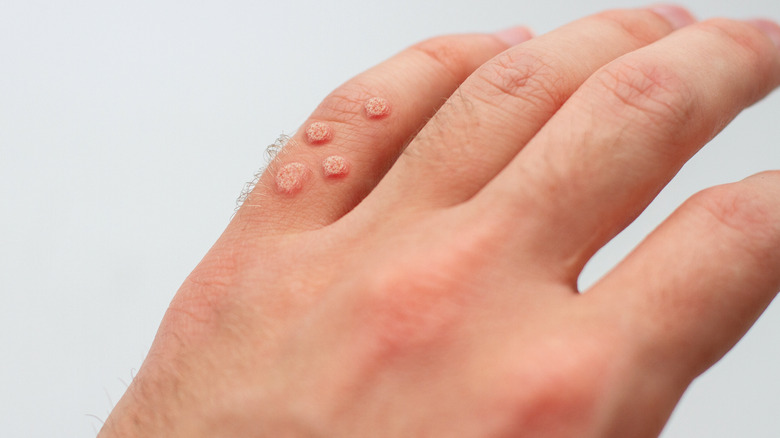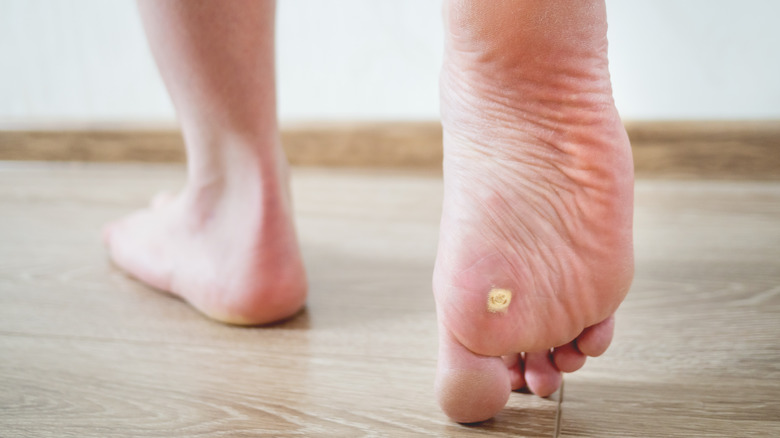How To Get Rid Of Warts
Although common and usually completely harmless, having warts appear on the body can be a deeply unpleasant experience. Per Harvard Health Publishing, warts occur on the body when skin cells grow faster than normal after being infected with the human papillomavirus, otherwise known as HPV. They tend to have a raised, rough surface and often grow on the hands and soles of the feet.
Although warts usually go away on their own, some can lead to body pain, especially when walking and exercising. Therefore, some people might be keen to get rid of their warts as quickly a possible. Thankfully, there are some effective treatments out there and you can find some of the very best below.
Per the NHS, a wide range of creams, bandages, and sprays can be purchased over the counter to help treat warts. However, it could take several months before you see any results with these kinds of treatments, and some may lead to skin irritation and not always work.
If you're unsure of which over the counter treatment to try first, a good starting point is salicylic acid. The treatment can be applied directly to the skin in liquid, gel, and patch form, and is generally low in cost with very few side effects.
Here's when you should see a doctor for your warts
According to Harvard Health Publishing, some other methods of removing warts include freezing, otherwise known as cryotherapy. This form of treatment involves a clinician applying liquid nitrogen to the wart. Although it can be effective, cryotherapy usually requires three or four treatments every two to three weeks.
Another way to get rid of your warts includes wearing duct tape over the affected area for up to six days. However, research of the effectiveness of this particular method has been mixed. Another method known as Electrodesiccation and curettage, which involves a clinician drying the wart with an electric needle and scraping it away, is also deemed an effective way of removing warts from the body.
According to the NHS, it is advised you should seek medical help for your wart if it is persistent and keeps coming back despite treatments, if you are experiencing pain in the affected area, if the wart begins to bleed or changes in its appearance, or if you notice warts growing on your face or genitals.

